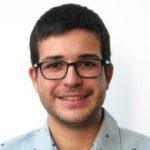
With 85 graduates since its inception in 2014, the DrPH Program has developed an illustrious, talented group of public health professionals who have taken their DrPH degree and have become public health leaders.
We recently reached out to Denizhan Duran, DrPH ’19, to find out where his public health career has taken him and the current work he is doing!
- Where are you currently located?
Denizhan: Washingon, DC
- Where are you currently working and a brief description of your job?
Denizhan: I am a Health Economist with the World Bank, the Middle East, and North Africa region. I work on analytical and lending projects in Morocco, Tunisia, Libya, and Palestine, focusing on COVID-19 response, health system reform, and resiliency.
- The 4 pillars of the DrPH Program are leadership, management, communication, and innovative thinking. Which of the pillars (if any) do you use most in your new position and how did the program prepare you for it?
Denizhan: All pillars of the DrPH Program are relevant for different aspects of my job: working at the World Bank is oftentimes quite a complex endeavor, requiring effective coordination across many internal and external stakeholders to reach a specific goal. This is especially true while leading lending operations. I am currently leading our COVID-19 response and vaccination project in Tunisia, which is a $120 million loan to the government, procuring vaccines and other commodities, as well as strengthening their health system for effective deployment. Our project supports the government as it seeks to reach an 80 percent COVID-19 vaccine coverage rate over the next few months (currently at almost 50 percent). This involves quite a bit of management and effective coordination within the organization across different teams, such as senior management, procurement, safeguards, and financial management. It also involves effective coordination, problem-solving, and communication with our Tunisian government counterparts, who are often overwhelmed with managing the COVID-19 vaccination program and response, in addition to their internal political context.
Being able to ask the right questions to diagnose the complex political economy context, knowing where to show up and step back, as well as effective communication are all crucial skills I have gained in my DrPH that I am able to practice on a daily basis as I solve problems together with my World Bank and Tunisian colleagues.
- If you could do things all over again, would you choose the same path for yourself? Why? What would you change?
Denizhan: While I’m not officially a manager, I do manage discrete analytical and operational tasks, and I think the profile of a DrPH is a very good fit for the kind of work we do at the World Bank. I think that experience working with stakeholders on complex problems in large bureaucracies is an essential skill to work at the World Bank. Some of the skills I use daily, such as effective diagnosis, listening, communication, and proactive management, are all skills I would look for as I hire colleagues at all levels. While the World Bank is a large bureaucracy, it is relatively flat in the sense that it is possible to exercise leadership at every level which is something I have been able to do over the past year leading our Tunisian portfolio. This is why the skills I have gained in the DrPH Program are even more crucial, including innovating within the organization to design effective technical and lending projects.
- Is there any work/document/article that you are currently working on that you’d like to promote? Our current students would love to find out what our alumni are currently working on.
Denizhan: In addition to leading the support to the COVID-19 vaccination rollout in Tunisia – which was not something I thought I would work on when I obtained my DrPH in 2019! – I am also supporting the Moroccan government as it designs and implements ambitious health financing reforms to reach universal health coverage – which was something I was hoping I would work on, and an area I focused on in my doctoral project. I have led analytical work over the past two years to support the reform, focusing on health insurance integration, costing of services, and an assessment of the health financing system including governance and political economy. This analytical work is set to inform our lending engagement in support of the reform, focusing not just on effective health financing but also on high-quality service delivery.
If you would like to connect with Denizhan Duran, please visit his LinkedIn profile here.



